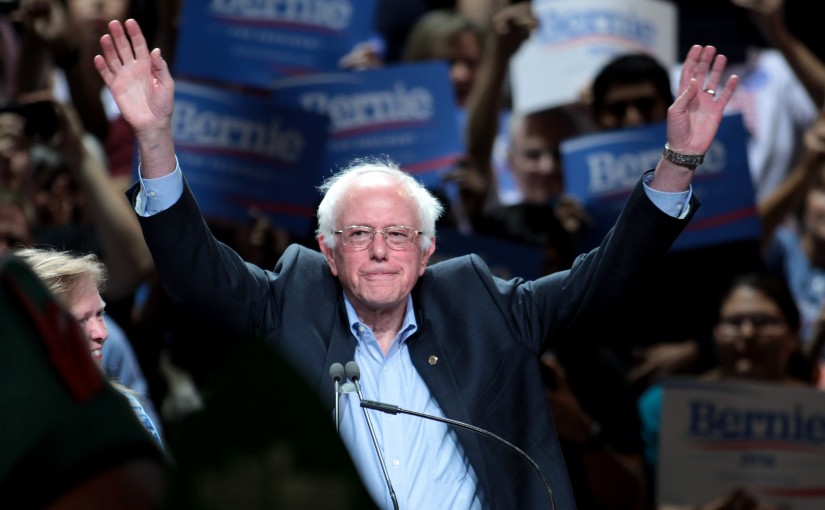Views expressed in opinion columns are the author’s own.
Today, the United States of America is the only industrialized nation in the world that does not provide healthcare to its citizens. As a country, we pay the highest costs for healthcare in the world, yet our citizens don’t see the benefits of our international counterparts that have a single-payer healthcare system. To make matters worse millions of Americans still don’t have health insurance and thousands go bankrupt or die each year because they can’t afford the treatment they need. There is a solution to the current healthcare crisis we face: Senator Bernie Sanders’, I-Vt., “Medicare for All” proposal.
Unfortunately, Maryland’s current senators, Democrats Chris Van Hollen and Ben Cardin, are not co-sponsors of the bill, despite the fact that Sanders’ plan cuts costs and saves the country about $2 trillion in the end, provides better care and takes a financial burden off families and businesses. It is time for Cardin and Van Hollen to sign on in support of “Medicare for All.”
[Read more: UMD progressive student group hosts Our Revolution President Nina Turner]
Opponents of “Medicare for All” like to point out the $32 trillion price tag it would cost to implement. However, they often leave out the fact that, in our current system, prices are rising at an estimated 5.6 percent per year and are expected to cost $49 trillion over the next 10 years. Keeping this in mind, implementing “Medicare for All” would actually save $17 trillion over a 10-year period.
A recent Mercatus Center study found a “Medicare for All” system would control costs and save Americans trillions over a 10-year period. The plan’s efforts to streamline administrative costs, negotiate drug prices — while getting rid of premiums, deductibles and co-pays — will save money, all while providing everyone quality healthcare.
On top of the huge savings that come from this plan, it is also important to look at what we are getting for the $32 trillion it will take to implement. The first major advantage this plan provides is that every single American would have health insurance, including the 44 million people who currently have no health insurance and another 38 million who have inadequate health insurance.
The second major advantage is just how much it covers. This plan covers doctor visits, specialty care, inpatient visits, prescription drugs, home care, maternity care, mental-health services and vision and dental benefits. When you look at most of the health insurance plans today, many of these services are way too expensive and not covered. After truly examining everything we would get under this program, you quickly realize “Medicare for All” is a bargain.
Finally, and arguably most importantly, the bill would take a major burden off working families. Under our current system, a family making $50,000 a year pays $6,273 for health insurance. Under Sanders’ plan, they would only pay $466. This saving allows families to have more money in their pocket, and spend more in the local economy.
The plan also saves businesses money. An analysis by Charles Blahous of the Mercatus Center at George Mason University showed businesses currently pay $1.2 trillion in healthcare costs per year, which provides coverage for 49 percent of the American population. This year, businesses paid $243 billion in federal taxes. That means corporate America pays five times as much for health care benefits for employees as it pays in federal taxes.
[Read more: You can’t separate politics from health care]
If you tripled, or even quadrupled, corporate income taxes, while eliminating all their spending on health care, it would still amount to a net savings for businesses. By eliminating these costs, business owners can focus on running their businesses efficiently instead of worrying about healthcare costs.
Maryland is known to be a forward thinking state that leads the nation on several issues. When it comes to healthcare we should be no different. That’s why Democrats Senator Van Hollen and Senator Cardin must sign on to support “Medicare for All” and become advocates for the bill. With their support and advocacy, we can move one step closer to implementing a healthcare system that will provide quality health insurance to all and save money for businesses and working families.
Jared Schablein is a junior government and politics major. He can be reached at jms17@terpmail.umd.edu.



